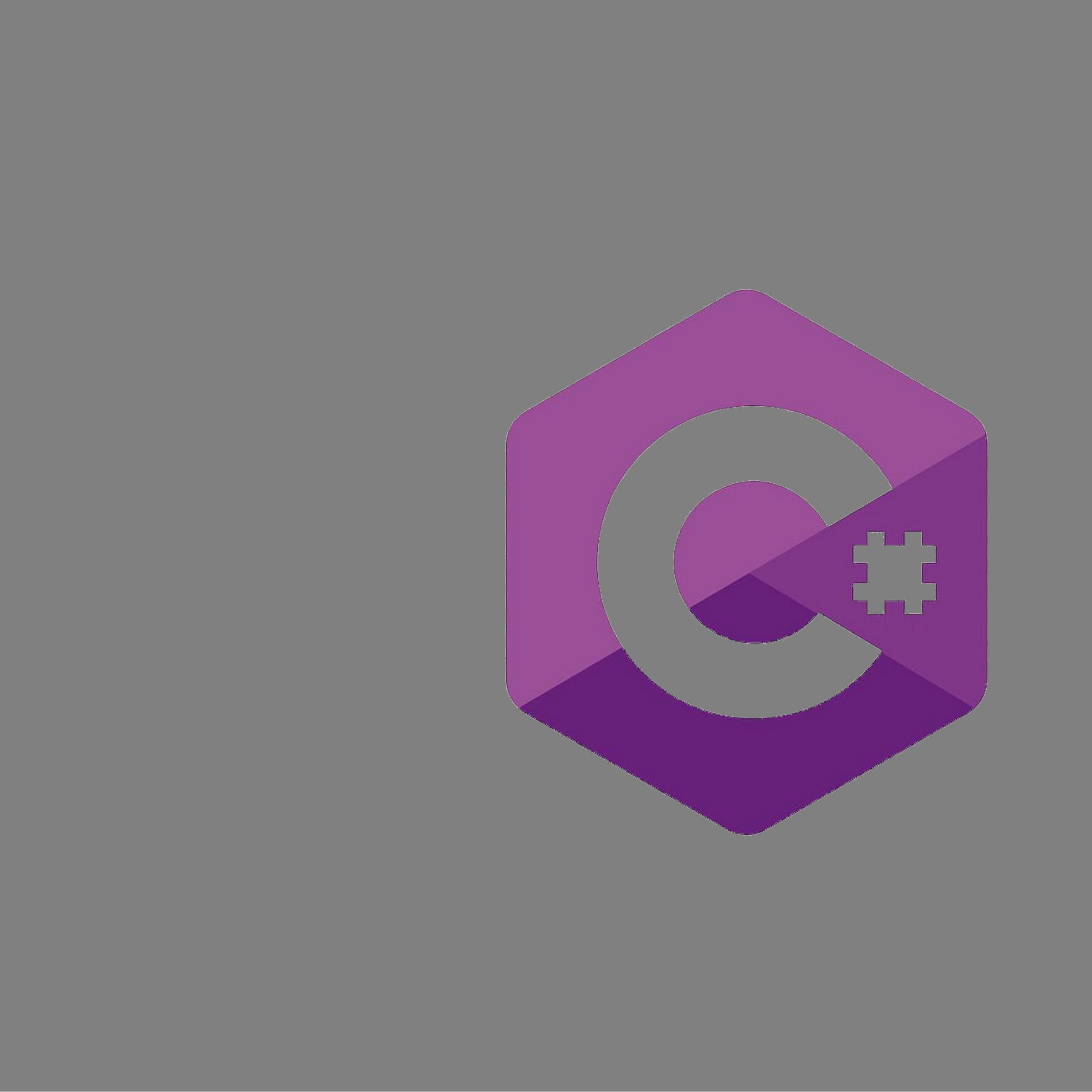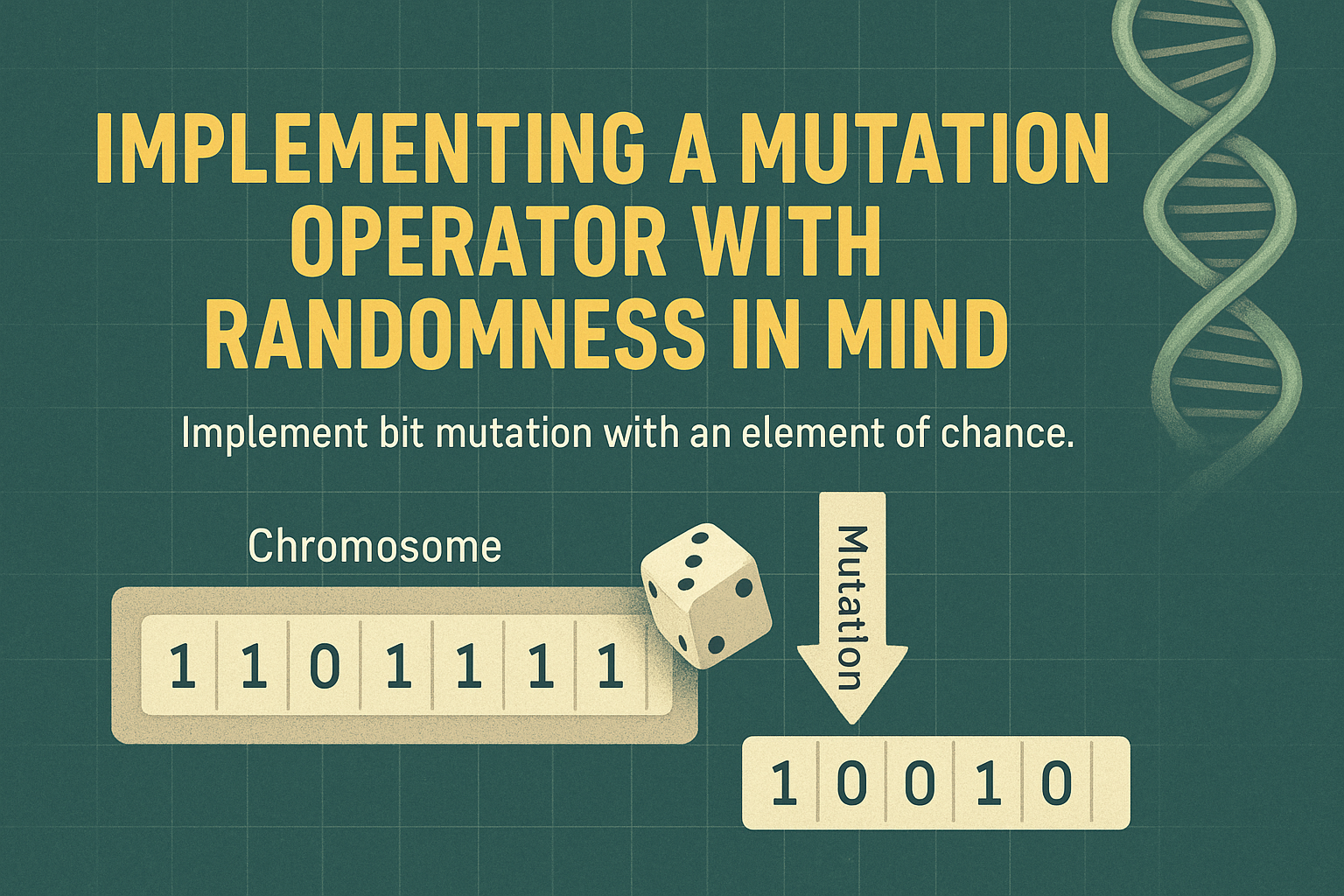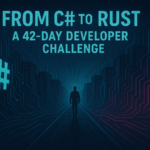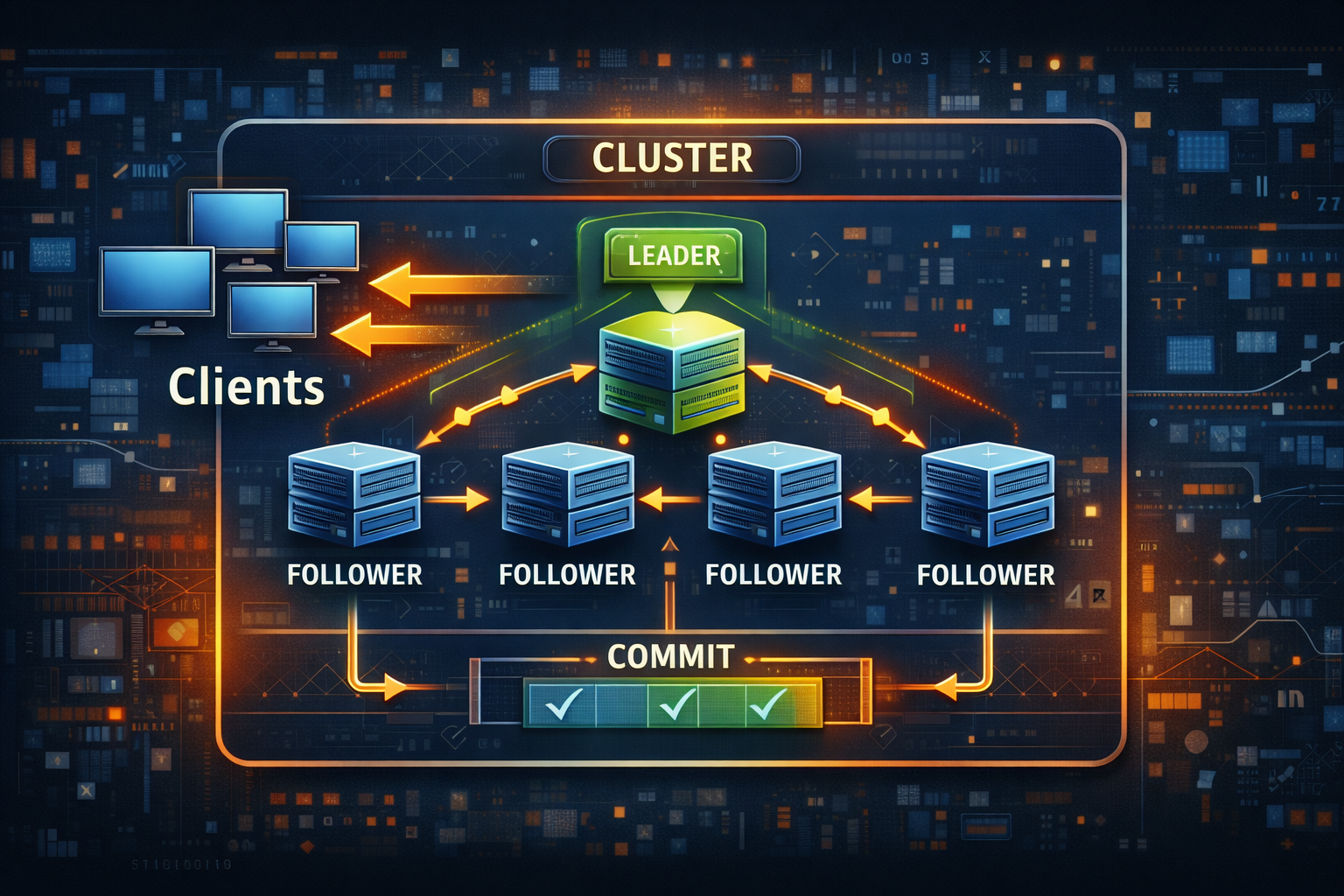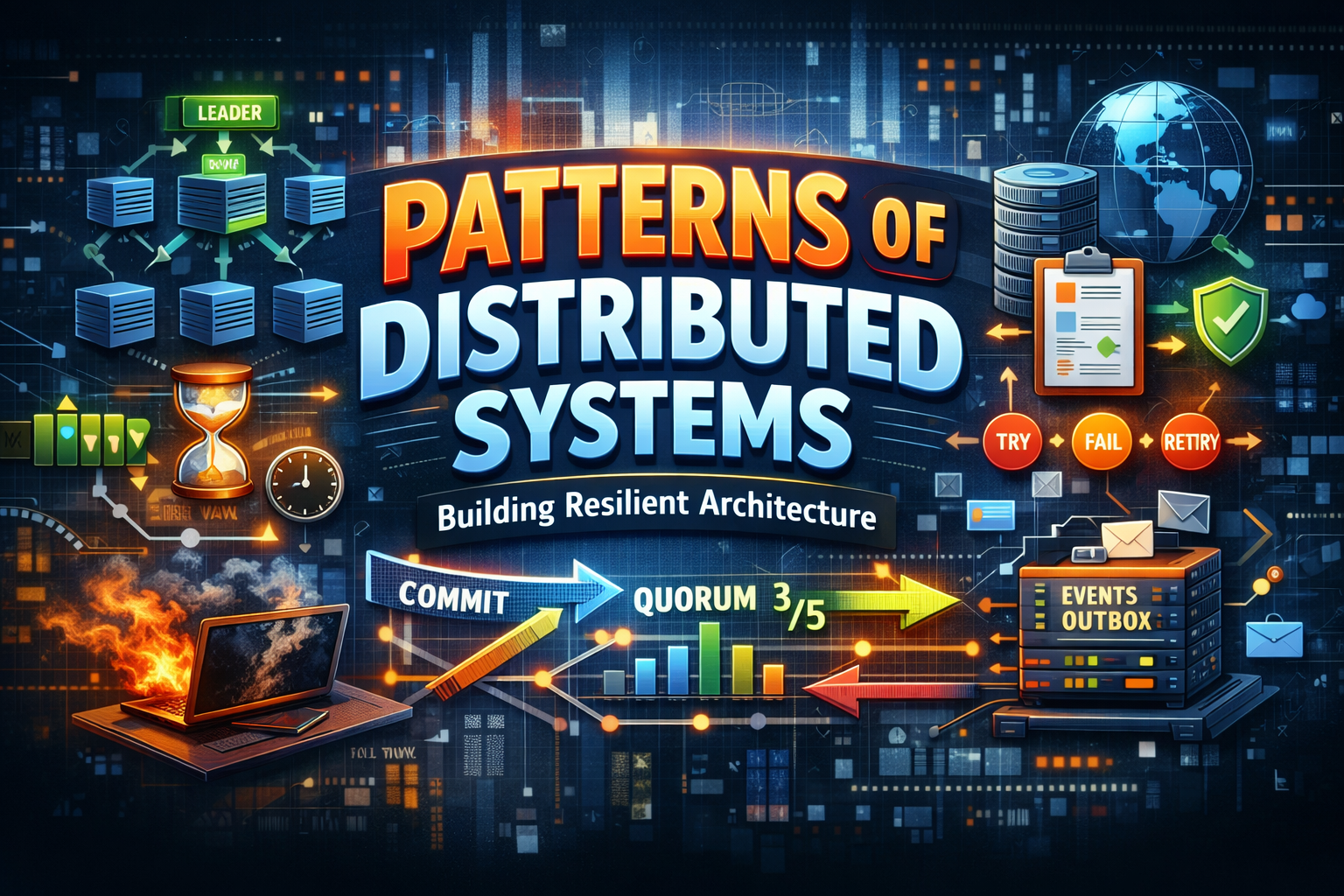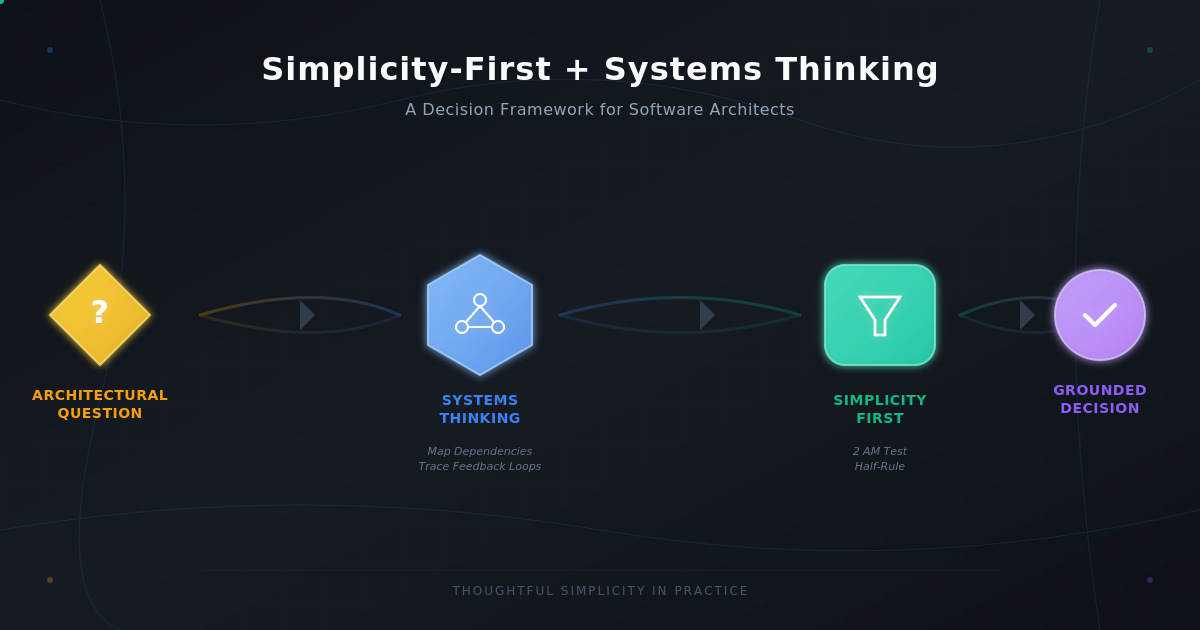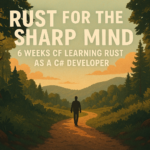
Rust for the Sharp Mind: 6 Weeks of Learning Rust as a C# Developer
- Chris Woodruff
- April 9, 2025
- Rust
- C#, dotnet, programming, rust
- 0 Comments
What will happen when you take a C# developer, hand them a curly-brace language that loves safety and hates nulls, and give them six weeks to figure it out?
You will experience a journey with me filled with rewired brain circuits, redefined mental models, and a newfound respect for the compiler. This will mark the beginning of our 42-day dive into Rust. This daily learning challenge will push us out of our .NET comfort zone and into a language that promises to be both frustratingly strict and beautifully empowering.
Week 1: A New Syntax, A New Mindset
The first week will appear deceptively easy. Installing Rust with rustup will feel a lot like setting up .NET with the CLI. Running cargo new will evoke memories of dotnet new, and printing the first “Hello, world!” to the console will feel familiar enough.
Then, the gentle shake will come: variables will be immutable by default, semicolons will signify more than you think, and functions will return values without a return statement. The syntax will strike as clean but purposefully minimal. By Day 7, we will realize that Rust isn’t just a language but a mindset shift.
Week 2: The Ownership Awakening
Week two will hit like a freight train made of compiler errors. Ownership, borrowing, and lifetimes—none of these will have a direct equivalent in C#. As a developer accustomed to the garbage collector doing the heavy lifting, being told “you moved that value, you can’t use it anymore” will feel rude.
But then it will click. Rust will compel us to be explicit about how memory is accessed and when it’s shared. It will be like having the world’s pickiest code reviewer living inside our compiler. Even though we and the borrow checker won’t get along initially, by the end of the week, we will find ourselves writing safer code without even thinking about it.
Week 3: Structs, Enums, and the Joy of Pattern Matching
This will be the week we fall in love with Rust’s type system. struct and enum in Rust will do what C#’s classes and enums can’t—they will model state precisely and safely. Pattern matching with match will feel like a supercharged switch, and using Option<T> instead of null will make bugs harder to create.
Rust’s enums, especially with associated data, will feel like something we have always wanted in C# but never quite had (unless we dipped into F#). Modeling data in Rust will become a joy, not a chore.
Week 4: Modules, Crates, and Errors Done Right
By week four, we will start to feel at home. We will dig into modules and visibility—how mod and pub work—and how Rust’s project structure will be rigid but clear. Adding dependencies through Cargo and Cargo.toml will be clean and intuitive. Crates will resemble NuGet packages with fewer quirks.
Then, we will encounter error handling. Result<T, E> will change the way we think about failure. Instead of hiding behind exceptions, Rust will make me deal with errors upfront. Using ? to bubble errors up without ceremony will be genius. It will be like getting compiler-enforced error handling with almost no boilerplate.
Week 5: Traits, Generics, and the Lifetime Dance
This week will be the deepest water. Traits will be Rust’s answer to interfaces but with far more power. They will be extensible and composable and feel more like type classes than contracts. Generics will be similar to C#’s but without runtime overhead. And then there will be lifetimes—the part that every Rust beginner dreads.
I will be honest: lifetimes won’t be easy. However, once we understand that they’re not about how long something lives, but about how long references are valid, things will begin to make sense. Rust will make the implicit guarantees of C#’s memory safety explicit, and that will be a good thing.
Week 6: Building Something Real
We will cap off the journey by building a small CLI tool using clap. It will parse arguments, read from a file, and do something mildly useful. But more importantly, it will work, it will be fast, and it will feel solid.
Testing with #[test] will be fast and built-in. Packaging with cargo build --release will be simple. And the binary will be tiny compared to anything .NET has ever given me.
By the end of the week, we will benchmark it against a similar C# tool. Rust will be noticeably faster, use less memory, and ship in a single file. For certain workloads, it will be hard to argue with that kind of efficiency.
Final Thoughts: What Rust Will Teach Us About C#
Learning Rust will teach us a new language and make me a better C# developer. We will begin to appreciate the cost of abstraction more clearly. We will start thinking more deliberately about memory and ownership. And we will realize that the strictness of a compiler isn’t a burden—it’s a partner that keeps my future self out of trouble.
Will we use Rust everywhere? No. But will we reach for it when performance, safety, and small binaries matter? Absolutely.
If you’re a C# developer curious about Rust, I encourage you to give it six weeks. It will challenge your habits, sharpen your skills, and change how you think about code. And hey—if the borrow checker starts feeling like a friend by Day 42, you’ll definitely be doing something right.
I will post the outline for the 42 days in a blog post tomorrow, and then we will start Friday. I hope you will join me.
